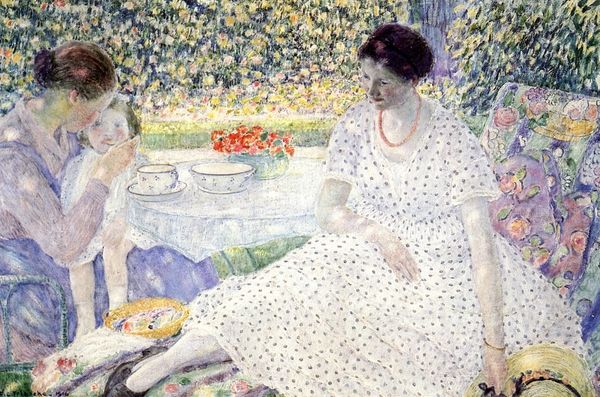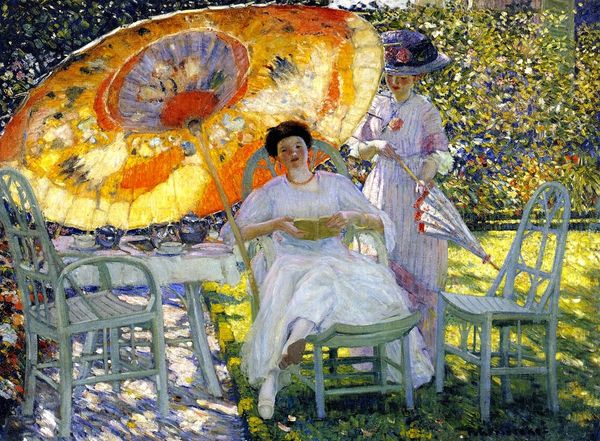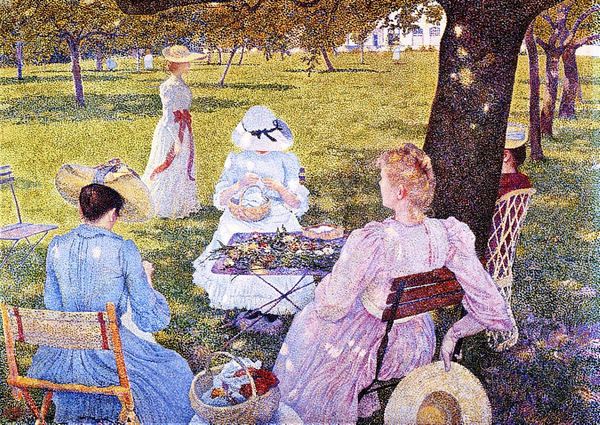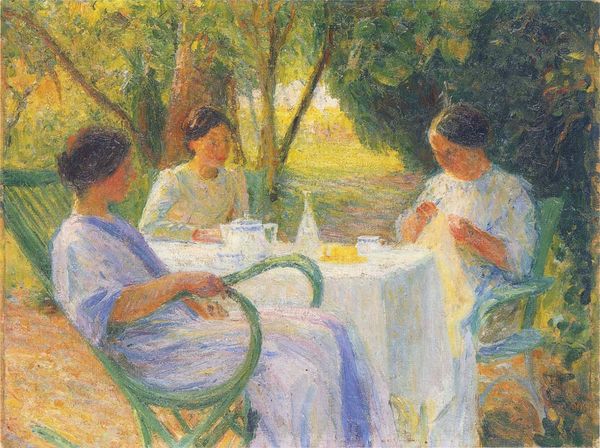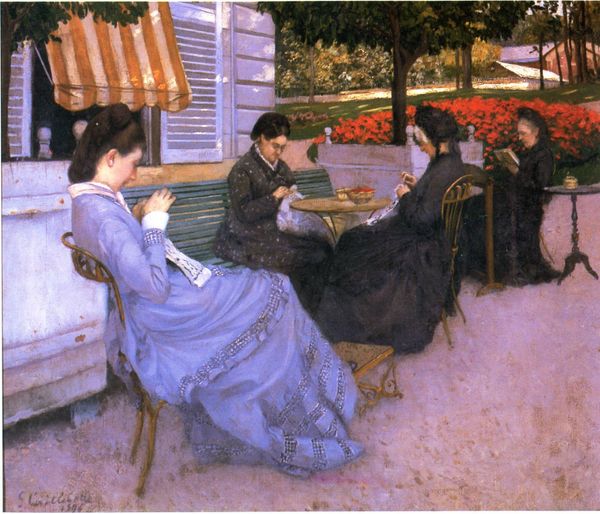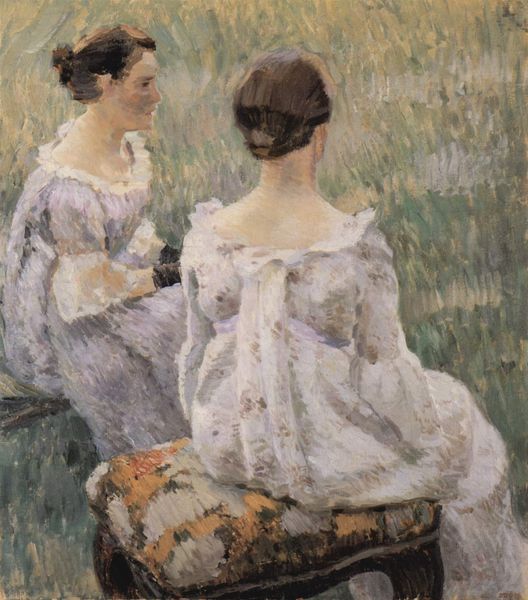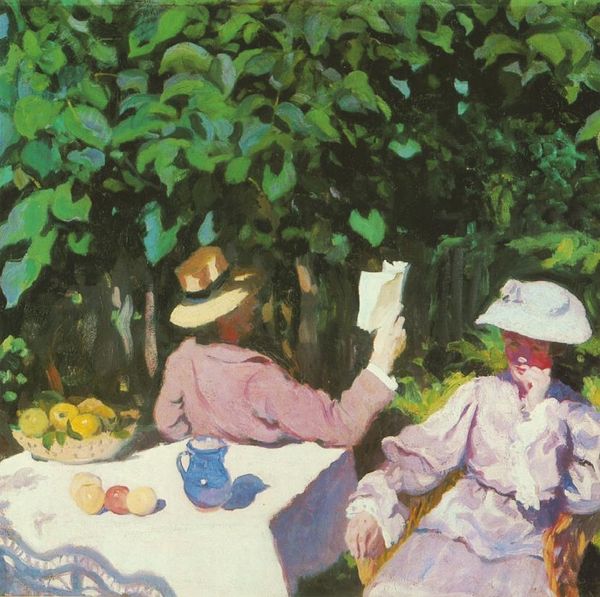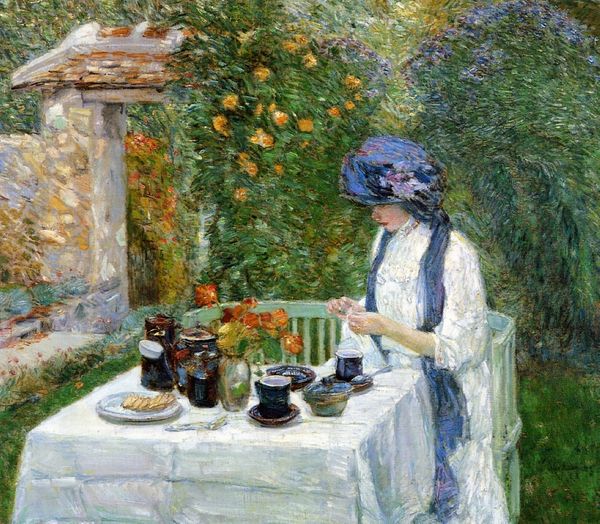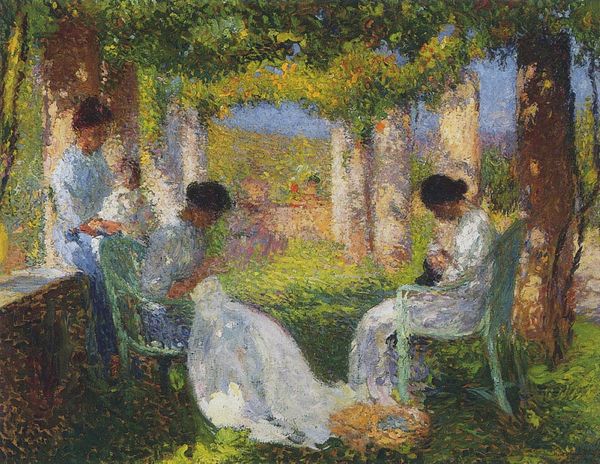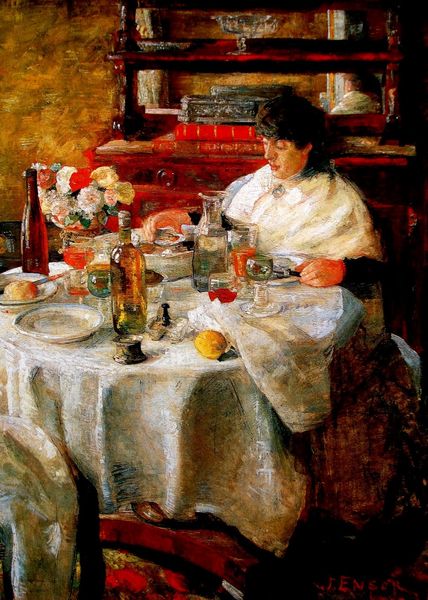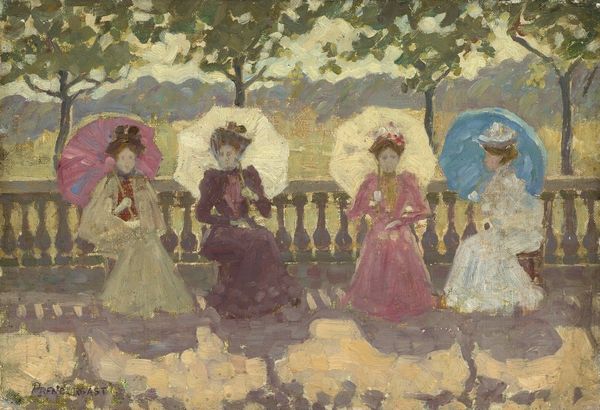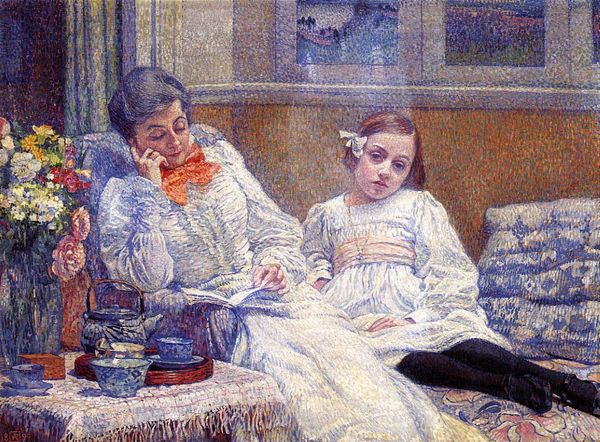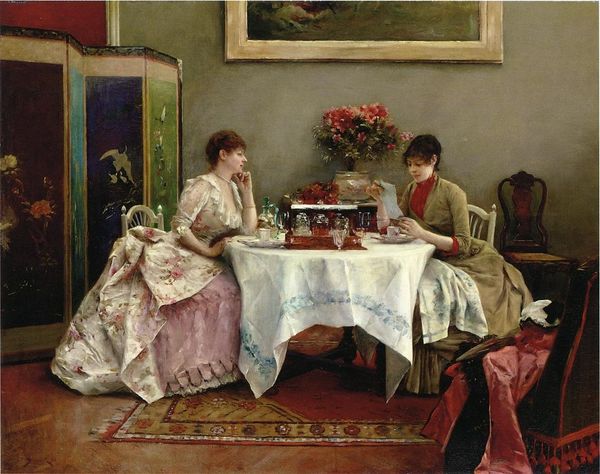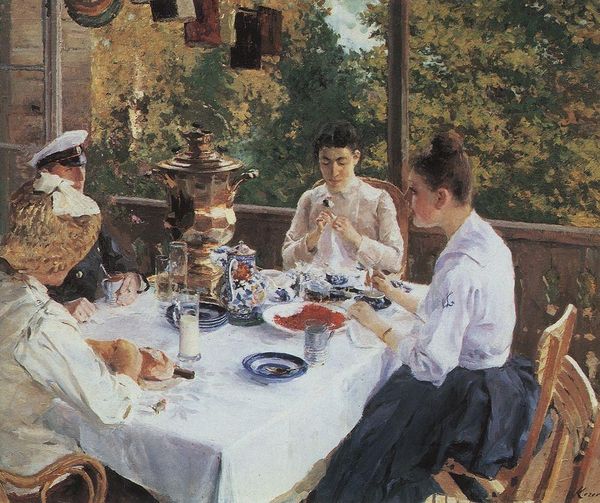
Copyright: Public domain
Editor: Here we have Theo van Rysselberghe's "Summer Afternoon (Tea in the Garden)," painted in 1901. It’s an oil painting that depicts three women enjoying tea outdoors. What strikes me most is the pervasive use of tiny dots of color; it almost vibrates! What can you tell me about it? Curator: The "vibrations" you perceive, that is the heart of Neo-Impressionism, building on Impressionism, but systematizing color theory through a scientific lens. Think of pointillism as more than just technique; it's an entire philosophy based on visual sensation and optical mixture. Now, look at their hats. Editor: They are striking; each woman's is unique! Are they significant beyond just being fashionable? Curator: Absolutely. Headwear acts as powerful symbolic language of their status and role in society. In a patriarchal culture, elaborate headwear functions as performative armor, signaling class, respectability, even availability. The image blends elements of genre painting with portraiture to tell a very specific narrative of feminine social ritual. But how do you think it communicates a uniquely female experience? Editor: The way they’re clustered together, sharing tea, embroidery, a summer afternoon…it all feels very intimate and quiet. It contrasts the visual chaos, but enhances a powerful feeling of shared emotional life. Curator: Precisely! The symbols of domesticity, of gentle artistry, they reinforce the idea of womanhood as a shared cultural identity. But can shared identity also imply restriction or expectation? Editor: I see your point. There is this sense of beauty and leisure, but it also feels very carefully constructed, following very strict rules. This isn't simply a snapshot of relaxation; it's carefully composed. I suppose the technique enhances that reading! Curator: Yes, everything reinforces that concept here. What a pleasure to unpack these cultural codes within "Summer Afternoon." Editor: Definitely. I'll never look at a teacup the same way! Thanks for showing me the symbolism behind it all.
Comments
No comments
Be the first to comment and join the conversation on the ultimate creative platform.
